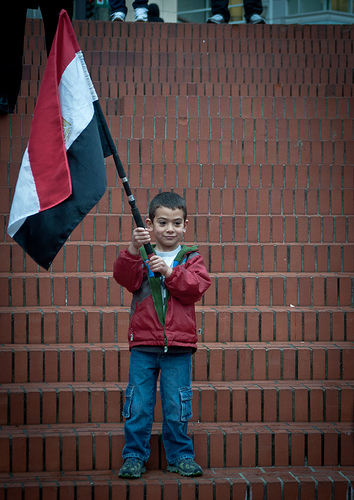 Malcom Gladwell must be wondering what went wrong.
Malcom Gladwell must be wondering what went wrong.
In October 2010 the award winning New Yorker writer penned a piece that tried to address the hyperbole about so-called twitter revolutions and suddenly he was the most hated man on twitter.
The response was spectacular. Twitter erupted into outrage, Biz Stone co-founder of twitter responded with a thoughtful but dense piece in The Atlantic Monthly that promoted twitter as a force for fostering relationships and creating meaningful change. For Stone the power of twitter lies in its ability to empower people through communication. He finishes his defence with:
Rudimentary communication among individuals in real time allows many to move together as one–suddenly uniting everyone in a common goal.
Now the idea of “rudimentary communication” happening in “real time” seems to me to be no different from me having a conversation with a stranger whilst waiting for my morning coffee, but I think I know what Stone was getting at – there is power is connecting heterogeneous conversations and rapidly distributing information. This is after all one of the revolutionary aspects of the Internet.
Interestingly, as far as I can tell, the Zuck and the gang at Facebook were too busy making money to respond.
What interests me about this is how thin-skinned the twitter fans appear to be. Gladwell was the subject of many vitriolic and hateful tweets that accused him of being part of old-media player and a right bastard. The debate was reminiscent of many techno-religious debates like Apple vs. PC or. NET vs PHP. Now the reductive fissure is social media vs. history, or twitter vs. Facebook.
Gladwell’s piece is problematic. He deliberately collapses issues with tools so as to be controversial saying:
Where activists were once defined by their causes, they are now defined by their tools.
I don’t think anyone could have easily missed what the activists in Egypt were rallying for or defined them merely assuming Facebook fans. It just so happened that Facebook was the most useful tool for communicating and organising the revolutionaries. In fact the only one defining activists by their tools is Gladwell.
Gladwell also takes issue with the claim by the US State department that cyber-activists are “the best hope for us all” dismissing the role of social media in the Moldovian and Iranian protests.
It is important to note that The New Yorker article was published in October 2011, well before the Egyptian or Tunisian revolutions.
Gladwell was right that about soneof the grandiose statements being made about how social media was enabling dissidents to protest in new ways. Whilst acknowledging that twitter was not the magic bullet against dictators, Time Magazine breathlessly proclaimed
But there’s no question that it has emboldened the protesters, reinforced their conviction that they are not alone and engaged populations outside Iran in an emotional, immediate way that was never possible before.
Wow. Little old twitter did all that? How’s this comment about a post in techmeme:
If Twitter stumbles, dictators, totalitarians and other thugs the world over will rejoice. The losers will be the people under their thumbs.
Clearly there was some hyperbole about twitter and social media that spurned Gladwell to write his slightly antagonistic piece.
Gladwell’s basic thesis is that social media creates what he calls weak ties. He did this after conveniently setting up the concept of social activism being dependent on what he called strong ties. He builds a lovely binary opposition of social activism = strong ties vs. social media = weak ties. Therefore social media is not a useful tool for activism.
That social activism is a dangerous activity involving much personal risk that requires courageous feats is not in dispute here. What is wrong with Gladwell’s approach is the overly simplistic and reductive dualism of real world vs Internet world. For Gladwell the Internet is a transient, temporary place whereas the physical world is real, robust and trusted. He seems to ignore that the Internet exists and is a reflection of the “real world”.
As a journalist Gladwell is blinded to the politics of information. For him politics is big boy stuff where information is controlled and disseminated by journalists, academics, politicians, and judges. Information is something formal which is produced and passively consumes. The idea of a heterogeneous sphere where information is distributed at the speed of light and old-world models of producer-consumer are obliterated are an anathema for a journalist whose strong ties have built an influential career.
Information, like power is always local. We are all subject to it and entwined within its grip. It can be distributed in multiple heterogeneous ways like a whisper on the street, by a bloke with a placard, by a blog, by a newspaper, by a teacher, or by an angry mob protesting against a repressive regime. Technology like the phone, the Internet, twitter, facebook, and mobiles can transform how information is distributed and transform structures of power.
I do feel to Gladwell, he has become the pinup boy for ludittes everywhere who bemoan the democraticisation of the distribution of information as being an irritating leach on corporate profits and political control. However, he really only has himself to blame, as he has acted the genius contrary clown in order to prove himself an original thinker. A debate on the true transformative and revolutionary impacts of technologies deserves better.

